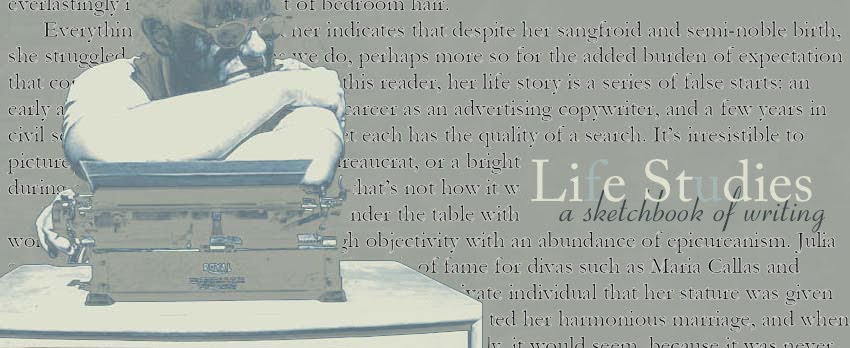Merry Christmas Bill.
I recognized the area code—Philadelphia, King of Prussia, Norristown. This person knew me, all right. I replied politely, a little delighted with the mystery. I was like Bette Davis on "This Is Your Life," listening to the voice but not guessing the right name.
Three hours later, the reply confirmed the game:
I think we should Keep it a secret for a little while. Life offers so little mystery these days.
The capitalized "K" is an easy enough mistake on the phone, but the statement about life seemed a little flabby for anyone I really loved. If anything, life was more mysterious at our age.
Still, I was excited. I texted back some names, even mentioning that it could be my dead mother. I said I missed Pennsylvania.
A little over an hour later:
Do you? And of that fine group of possible well wishers, who do you miss the most? Excluding mother of course.
Then, immediately after:
And don't forget the possibility of my having moved from a different state Or perhaps even a different country! Remember?
I sent another name just before bed. The reply came in 15 minutes: Or perhaps...?
* * *
When I woke up at 2:00, I thought about how quickly I was ready to forgive Bob or Sara, or Jose. All that work I had done to nullify the excitement of those names, my longing for them simply to remember—so that I could exist. To be forgotten is the cruelest fate, to be put aside like a bad wine. My only dignity was in recognizing—fully accepting—that I was not the defining, blazing memory that they were for me. Such understanding seemed the accomplishment of my years, tinged with Buddhism.
I had been a chocolate confection, tasted and put back in the wrapper without embarrassment. The stories of their lives had been recast, diverted around me like a traffic bypass.
Now the mystery texter was making an absolute fool of me. The size of my need for those old people—one wrinkled by too much sunny California tennis, the others consumed by their careers, tone-deaf and strident, wealthy and slim—is incalculable and beyond my manipulation. One word and my heart is back in the bucket.
Such is the biography of lust, I guess. They listened, too, but not for long. By the time Gary came along, I had largely stopped talking—knowing, finally, that good sex just doesn't buy you all the pre-dawn conversations I needed. No one can make it better.
The fact is there is plenty of mystery, and danger, and humiliation, left in life.
And of that fine group of possible well wishers, who do you miss the most?
In the texter's question, the power is suddenly inverted. I am asked to choose from among old loves who would never choose me, faces that have peopled my dreams for 30 years. In every one, the behaviors and outcomes are the same, locked into place by memory, the subconscious heating up like a reel-to-reel film projector that stays depressingly on script.
I can't read the boxes of old diaries I kept, filled with cards from bars and slips of paper with phone numbers and names I can't remember. I made lists of food, the money I spent, how many cigarettes I smoked, where I spent the night. It's too real.
Perhaps I am a curator of stultified memories, like a person who hums a tune imperceptibly altered, remembered forever—incorrectly.
This morning the texts have stopped. I looked up the number and found it's someone in Reading, PA.
Just a wrong number.
